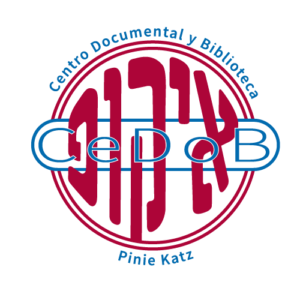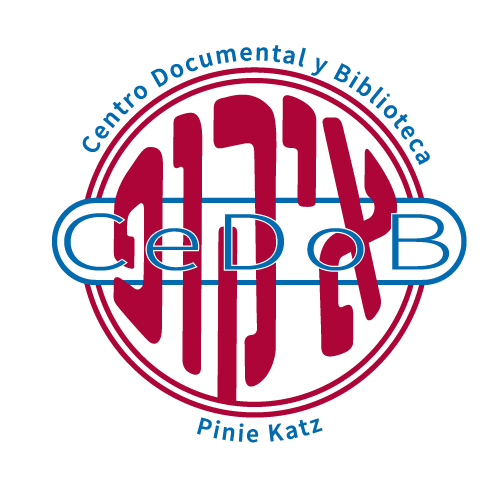
We thank Jacob Giner (University of Florida) for the translation work
Throughout the 20th century, the Jewish progressive movement flourished in Argentina thanks to the efforts of hard-working Jewish immigrant leftists.
Across the world, progressive Jews (in Yiddish, progresive yidn) built cultural/educational organizations and publications that played critical roles in the front against fascism, racism and antisemitism. These institutions promoted a unique yiddishkeit, championing secularist values and working-class solidarity. In keeping with these principles, Jewish leftists committed themselves to joining their work to progressive causes throughout society, traversing cultural barriers.
As the inheritors of this legacy, it is incumbent on us to preserve and increase awareness of it; it is no footnote, but a crucial piece of our history, as Jews and as progressives. That history is complex; we recognize it as both fundamentally Jewish and intimately linked to broader struggles for equality, cultural preservation, and education, both in history and modernity.
This dialogue and mission led to the creation of the Pinie Katz Documentary Center and Library in 2018, a new institution of the Idisher Cultur Farband (ICUF). The center coordinates public events for learners of all ages, as well as educators and academics. With its main office in Lavalleja N.° 182, Buenos Aires City, and a second office in the Idisher Folks Teater, the Pinie Katz CeDoB advances and advocates for the conservation and stewardship of Progressive Jewish documentary history and coordinates research and translation efforts related to the Progressive Jewish culture and history of Argentina, the surrounding region, and the world at large.
With your support, we will continue to translate materials, publish books, restore photos and objects, and make accessible digital resources. We invite you to follow us and collaborate with the CeDoB by clicking here
Know the history of Pinie Katz Documentary Center and Library!
CeDoB Pinie Katz projects
Objetivos
The main objective of the PINIE KATZ DOCUMENTARY CENTER and LIBRARY (CeDoB) is to become the reflection of the icufist history and ideology. In this sense, we propose a careful selection of the materials to be collected. The specific objectives of the Pinie Katz CeDoB are:
– To promote the knowledge of the icufist proposal with systematic research among the academic fields and for the general public.
– To rearrange a space so that the young people of our movement know their roots and recover the origins of identity and thought that characterize the current values of the movement.
– Generate a space for collective meeting so that the older generations can build a history that goes from the plane of memory and anecdote to recorded testimony.
– Recreate the life and work of movement personalities and their works.
– To design an orderly and publicly accessible archive that allows permanent consultation of the different institutional materials, where organized information can be provided for researchers.
– Disseminate through the web and social networks the activities and materials made available by the Center.
Misión
Given the national and international social and economic transformations that took place in the 1930s, our institutions were born as meeting places for hundreds of families who found in Jewish and humanist progressism a place of belonging and a channel of participation. At present it is necessary, almost essential, to translate those experiences into a framework that offers the possibility of leaving to new generations the knowledge of an ethnic, political and cultural proposal that was opened in multiple ways to society, based on the motto «from the singular to the universal».
Notable are the results of the last Jewish demographic work in Argentina carried out by the Joint, where it is affirmed that six out of every ten people who recognize themselves as Jewish have no link with institutions of that origin. The research work in our environment shows that there are families linked to the «di progressive», but whose descendants were integrated to other spaces of belonging, although without ceasing to feel Jewish.
This was explained by the eminent Angel Grushka: Integration, to the point of becoming a gregarious identity, was the leitmotiv of the progressive sector of the community from its origins with a sense of addition, not of sacrifice of the cultural factor to be integrated (…) there was since then a two-sided struggle: against the guético-nationalist cloistering and against the dissolving assimilationism, at the same time as it confronted anti-semitism and discrimination. At present, most of the children, grandchildren and great-grandchildren of the progressive Jewish immigration are not linked to the institutions, but we find them in numerous areas of political and cultural work, both in our country and in others.
Our icufist movement has suffered, as much as other civil organizations, the vertiginosity of the transformations that notably reduced its structures during the second half of the 20th century. This reality can be seen as a loss or an accomplished objective: that of full social integration. That is why we have an important mission, to recover that history. To forge the TALE of that experience of ideological and cultural construction that constituted our identity.


